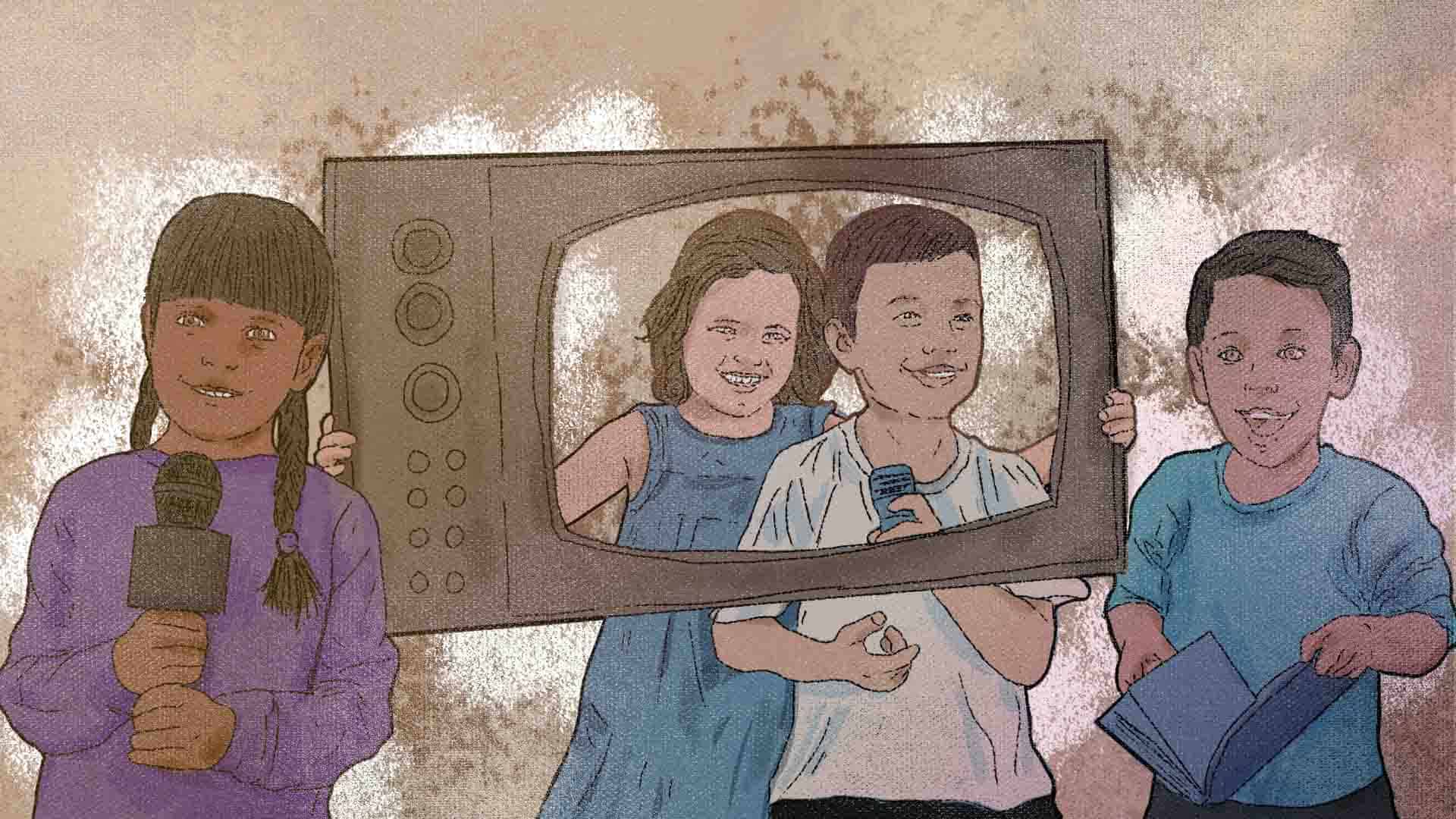

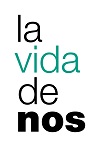
Mytha Cordido wanted to become a lawyer, but her mother had her enrolled in a career in Education at the University of Carabobo. At first, she felt frustrated, but she would eventually discover in her classroom practices a vocation for teaching, one that she has clung to, as she has to her faith, every time the world around her seems to fall apart.
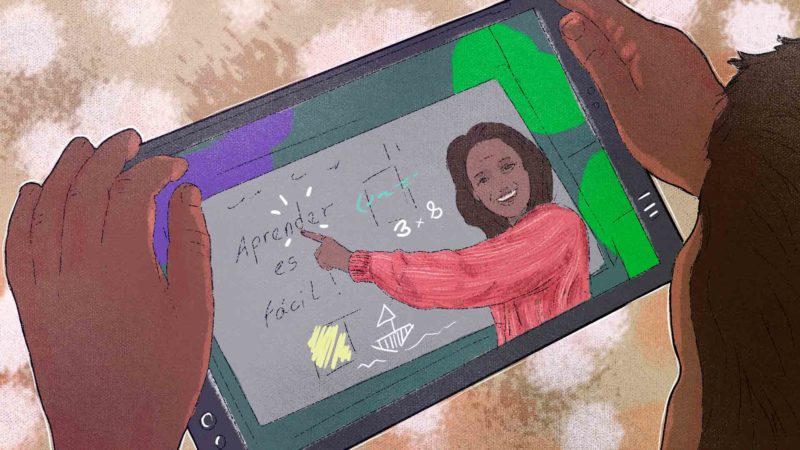
“Mytha, I was laid off. The company had to cut jobs and I was left out…” said Yván, still wearing the uniform of the oil manufacturing company where he had performed as a food engineer for the last twenty-three years.
“Take it easy, pal. The Lord will provide,” she said to her husband.
Although it did not take her by surprise, because word that another group of people was about to be laid off had spread among the staff, she was baffled by the news. It was not a good time to be left without a job. The year 2016, where food shortages had been an increasingly frequent occurrence for Venezuelans, was coming to an end. People’s salaries couldn’t buy the few products available. Knowing that her husband was unemployed, Mytha figured the months ahead were going to be very difficult for her family.
How would they do? What were they going to live on? Mytha said nothing, but she felt distressed. What she earned as a public school teacher and from the small private school that she had been running at her home in Valencia, Carabobo, was not enough for her to make ends meet. She sought refuge in her faith. She would pray a lot to God to shed His light on her so she could find a way out.
Mytha Cordido began studying Early Childhood Education at the University of Carabobo in 1987, at the age of eighteen. She arrived in Valencia from the municipality of Independencia, Yaracuy, some 87 miles away. She was disgruntled because her mother had told her that she would not study Law at the University of Zulia, which is what she wanted, but Education elsewhere. Mytha’s mother got her a place in the university, rented a room for her, bought her a ticket and packed her suitcase so that she would start her life as a university student.
“Why do I have to study a career I don’t like?” she wondered every day, in tears, when she came back to the room where she was staying. At one point, she even considered dropping out. She was already a strong believer, as hers was a family of evangelical Christians, and she began to pray hard, the way she did whenever she felt tormented.
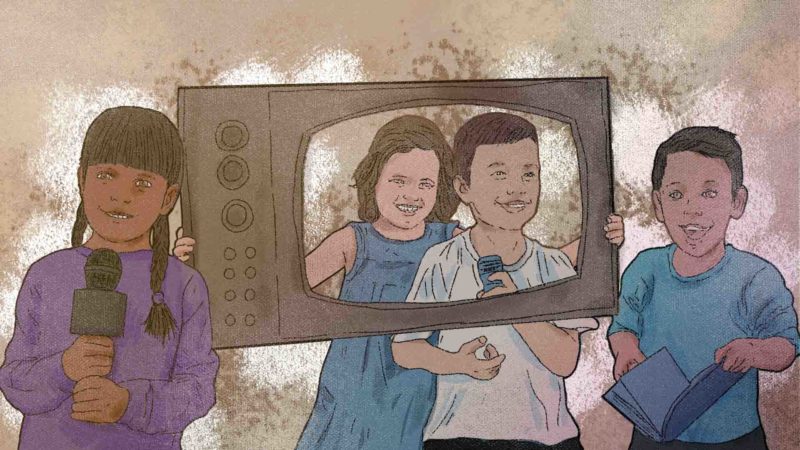
As the months went by, Mytha realized that she actually enjoyed the classes and the activities proposed by her professors, that her classmates were kind and thoughtful, and that she was doing well in the courses she had taken.
Her greatest discovery came when she was into her 3rd semester, when she had her first classroom experience with young children. Mytha had applied for, and was granted, a work-study scholarship. She worked at the Early Childhood Education Center of the University of Carabobo, where the university’s faculty, administrative staff and workers took their children.
Although she had been in similar schools before, this time she felt she was seeing everything through different eyes. That day, the teacher asked Mytha for help with a drawing activity, and she was thrilled to be able to guide the kids and very moved when they called her “the other teacher”.
She was ecstatic when she arrived back at her room. This time, she felt she was on the right path. Never again did she entertain the thought of becoming a lawyer. Further into her program, she understood that she could contribute to forming righteous men and women through education. She liked that because it was very much in line with what her parents had taught her at home and with what they preached at her church in Independencia. And she wanted to be instrumental in constructing a prosperous and developed Venezuela by teaching children how to be better citizens and good people.
Even before graduating, she was already thinking of setting up a small school at home. She began to mull over the idea at around the same time she married Yván. She wanted to have a place of her own where she could put everything she was learning into practice. She had agreed with her husband that she would stay at home to raise their children while they were young and that he would work to provide for the family.
Some time later, Yván helped her by buying the tables and chairs for the escuelita [small school], and they got down to business. But she only had three students and she earned very little in return. On the other hand, Mytha was not very well known there, and she knew that some of her neighbors said she lacked the experience and practice as a teacher. They distrusted her. It all made her have second thoughts about her project. She wondered what the point with insisting was with only a few kids attending the escuelita. But then she recalled how she had discovered her vocation for teaching and found the motivation she needed to continue. If God had shown her that path, it must have been for a reason.
One day, while she was taking her own three kids to school, she noticed that they were looking for teachers. With her children already grown, Mytha decided to submit her documentation and apply for the job.
She started as a substitute teacher and then she was promoted to incumbent teacher.
Very soon, parents, representatives and neighbors in the community got to know her work. Many spoke of her commitment and dedication to their students at school and did not hesitate to recommend her to those who were not acquainted with her. Her students’ parents were bearing witness to their kids’ progress in reading and writing and noted that they were more orderly and attentive and that they loved going to class, which is why many of them wanted their children to go to the escuelita, no matter how far away from it they lived.
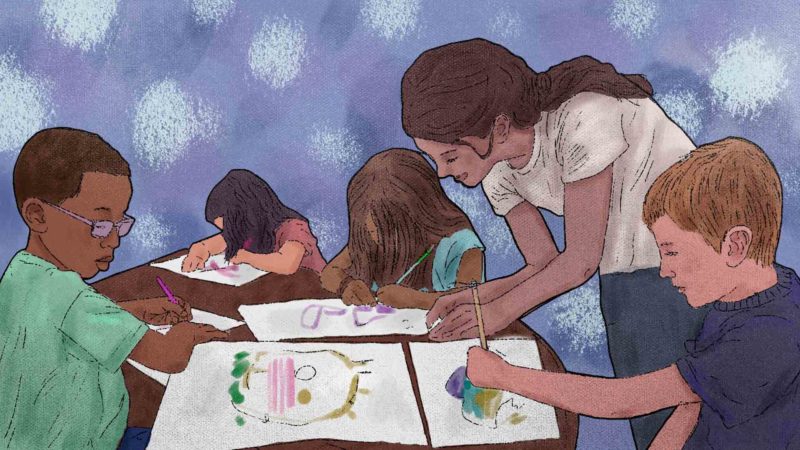
The place where the magic happens, as Mytha uses to call it, is the house’s garage; it has four tables, blackboards, chairs and the toys that once belonged to her children. She did her best to avoid having the rigid teaching style of traditional schools. In the escuelita, children learned to use their imagination: they could, for example, set up a television channel and play the main characters of the programs; they could play carnival games, celebrate birthdays, grow plants, and prepare recipes… And, along the way, they were learning to love learning.
In 2016, when Yván got laid off, Mytha feared that the crisis would also hit home. She already knew that many of her neighbors had engaged in other trades to supplement their income. A number of coworkers at school had quitted their jobs to migrate or to do something that would enable them to put some food on their families’ tables. People’s faces were glum and dispirited wherever she went.
One afternoon, as she was arranging the tables at the escuelita, sweeping the garage and waiting for the children to arrive, she thought that it was precisely at such a difficult juncture for everyone that her students needed her the most. And that, after all, teaching was what she knew how to do. She was not going to abandon them. She would step up and give her best. That day, she decided to do her hair and make-up with greater care and waited for them more eager and hoping that the two hours they were going to spend with her will make them forget what was going on elsewhere.
From that moment on, she would dance and sing with her students and plan and organize more stimulating and enjoyable activities.
Although she had done some sewing for her family and a few close friends, she started teaching sewing at the escuelita and took tailoring orders. That provided her with extra money, just enough to pay for her household’s expenses. In the meantime, Yván would get the occasional job in some company, but only under a short-term contract for a couple of months.
She was happy with the results of her work because she felt that she infused the kid’s representatives and her colleagues with the energy she put into everything she did. In any case, she had managed to help people next to her put hopelessness and disheartenment aside so they could move forward.
Years went by and the COVID-19 pandemic broke out. She needed to adapt her strategies if she was to continue teaching. So, she recorded videos for her students, which she edited herself. She learned on the fly, by doing. She also learned about social networks and distance education. It all came in handy because, regardless of the quarantine, new students were joining her classes, many of them the children of Venezuelan migrants themselves.
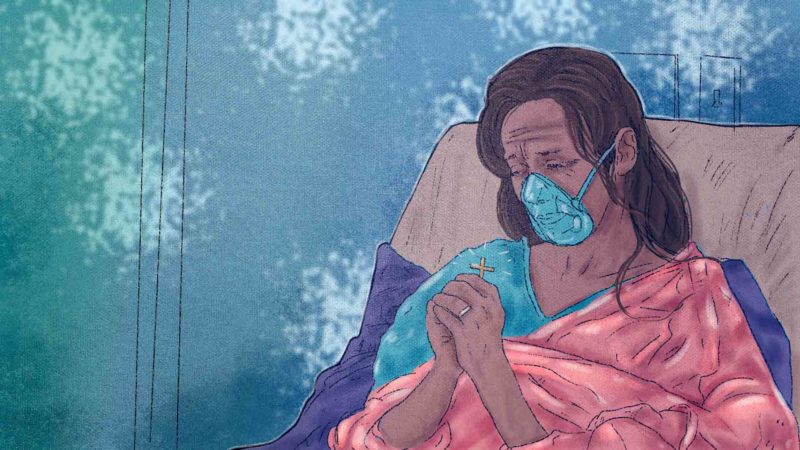
The escuelita continued to operate. However, in April 2021, Mytha felt under the weather with fever and cough. Tests confirmed that she had COVID-19. It stroke at a time when the family’s financial situation was not the best. She was being treated at home and, at 52, had no preexisting conditions, but she would not get better and her oxygen saturation levels were dropping.
She had to be hospitalized. She thought she was going to die in the intermediate care ward, for she saw other people die of the same disease right beside her.
One day, when she was feeling so bad she thought she would not make it, she got a message from Javier, one of her students: “Mytha, that same God who you taught me can do everything is going to hold you and lift you up.” One of her sisters, who is a nurse, had her transferred to another hospital where conditions were better, and she began to recover.
A few days later, she was discharged from the hospital.
While she was bedridden, Mytha had plenty of time to reflect on things. She now knows that the escuelita will not end when she is not around anymore. Arantxa, her daughter, perhaps inspired by her work in every class she gave, decided that she would pursue a teaching career. Now, from time to time, she helps Mytha take care of the children. At 53, Mytha is convinced that God always shows her the path forward. And she has her family, her career and her escuelita. Her students will always find her there, ready and with open arms.
 Esta historia fue desarrollada en el taller “Comenzar a contar(Nos)”, impartido por nuestro editor senior Erick Lezama, a través de la plataforma El Aula e-nos, en el 4to año del programa formativo La Vida de Nos Itinerante.
Esta historia fue desarrollada en el taller “Comenzar a contar(Nos)”, impartido por nuestro editor senior Erick Lezama, a través de la plataforma El Aula e-nos, en el 4to año del programa formativo La Vida de Nos Itinerante.
1071 readings
I am first and foremost a person. I am also a deeply spiritual individual and I am committed to my life’s purpose. At the end of my days, I would like to be able to nod at the thought that I made it.